Submitted by WA Contents
kooo architects built retreat village by using local materials on hills of Zhejiang
China Architecture News - Jul 04, 2019 - 03:49 18803 views
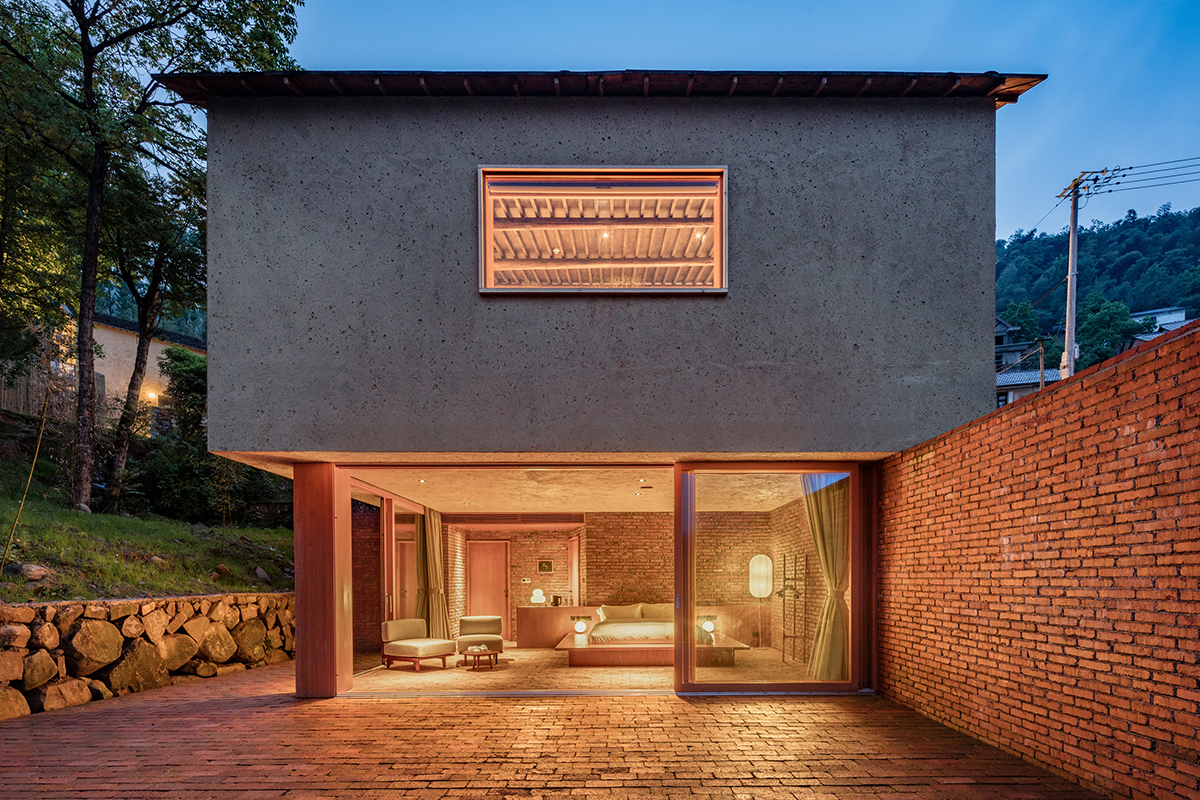
Tokyo and Shanghai-based architecture firm kooo architects has built a retreat village composed of six buildings on a hilly landscape of a rural "empty nest" village in Tonglu, Hangzhou, Zhejiang, China.
Named Origin Villa, the architects scattered six buildings throughout the hidden village to create a harmony with its existing surrounding. Rebuilt as a new retreat village, the existing villagers' houses were built with beautiful rammed-earth walls made using local soil.
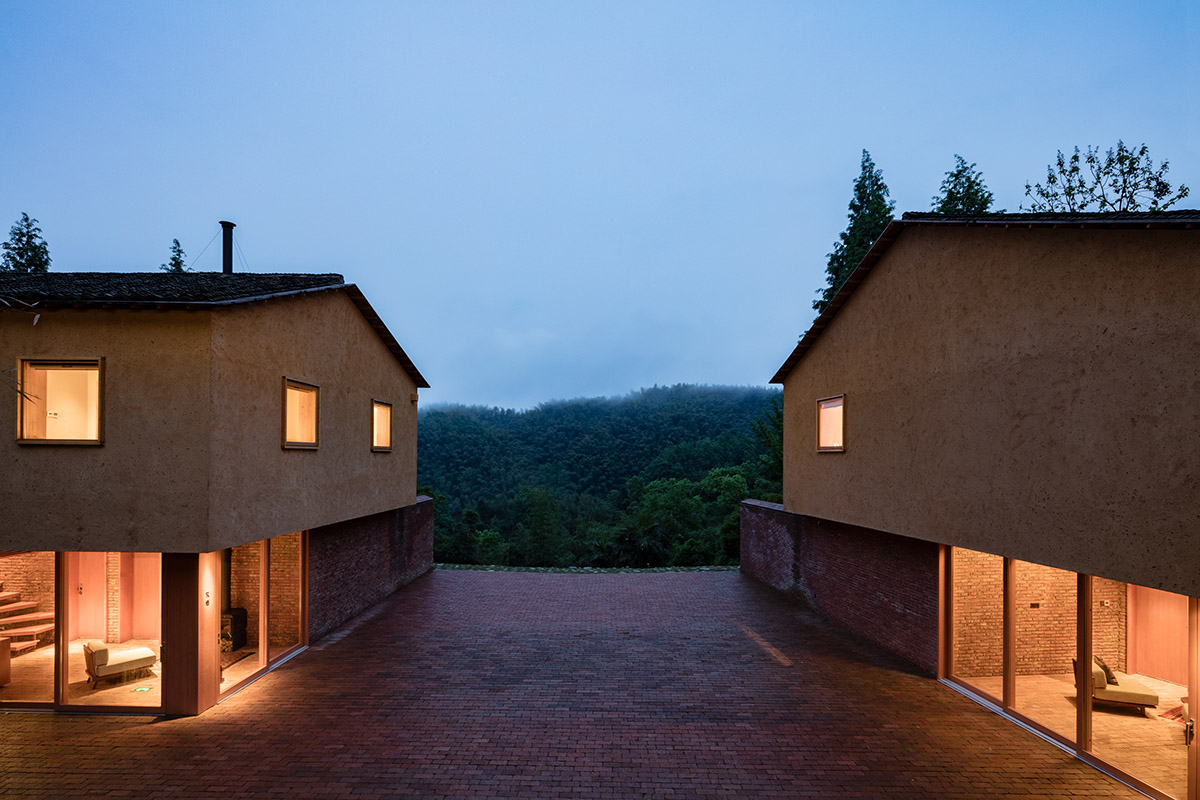
Building No 7 & 9
"However, if we just renovate using the same traditional method, it is inevitable that the view of the charming landscape outside will be blocked entirely and the interior space will feel compressed because of the heavy walls," said kooo architects.
"Furthermore, if the new resort is solely constructed with country-style rammed-earth walls, it will just be a restoration project and may not be so attractive to many tourists," they added.
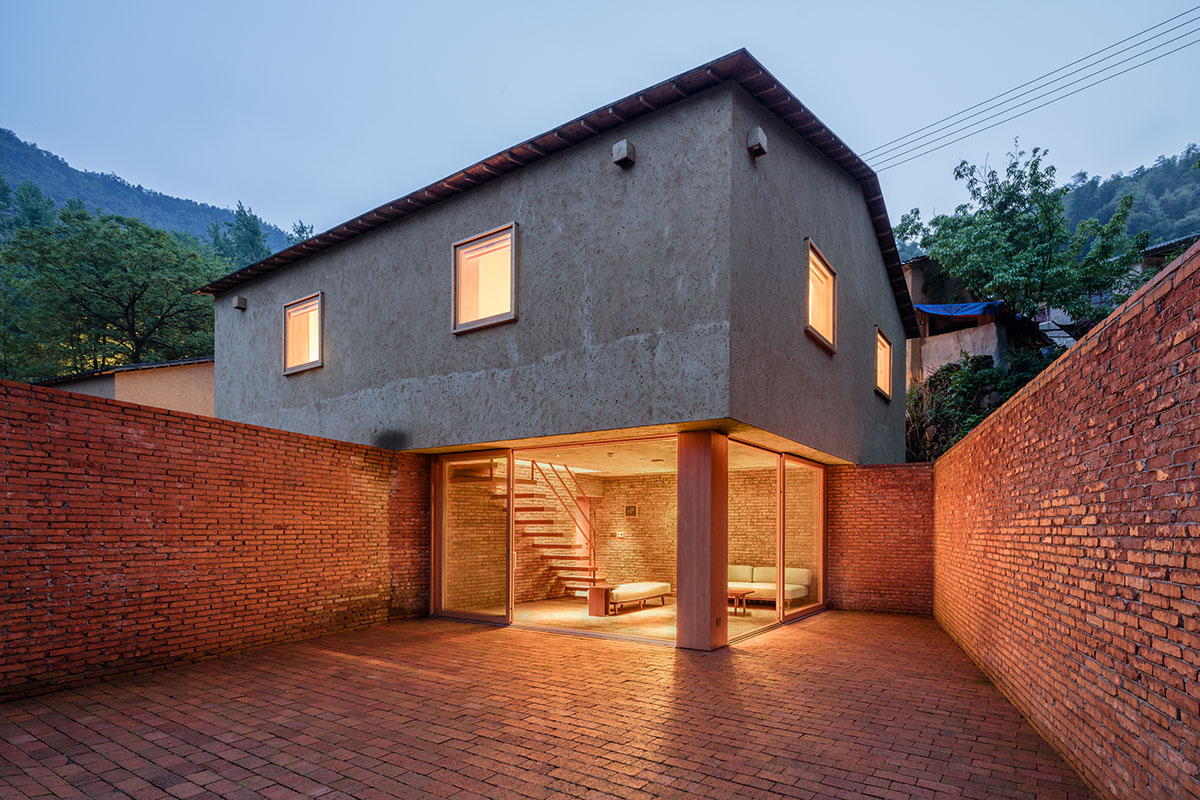
Building No 7 & 9
The task was to balance two seemingly contradicting conditions: to fully enjoy the abundant nature of the site (open) while harmonizing with the existing houses (enclosed walls).
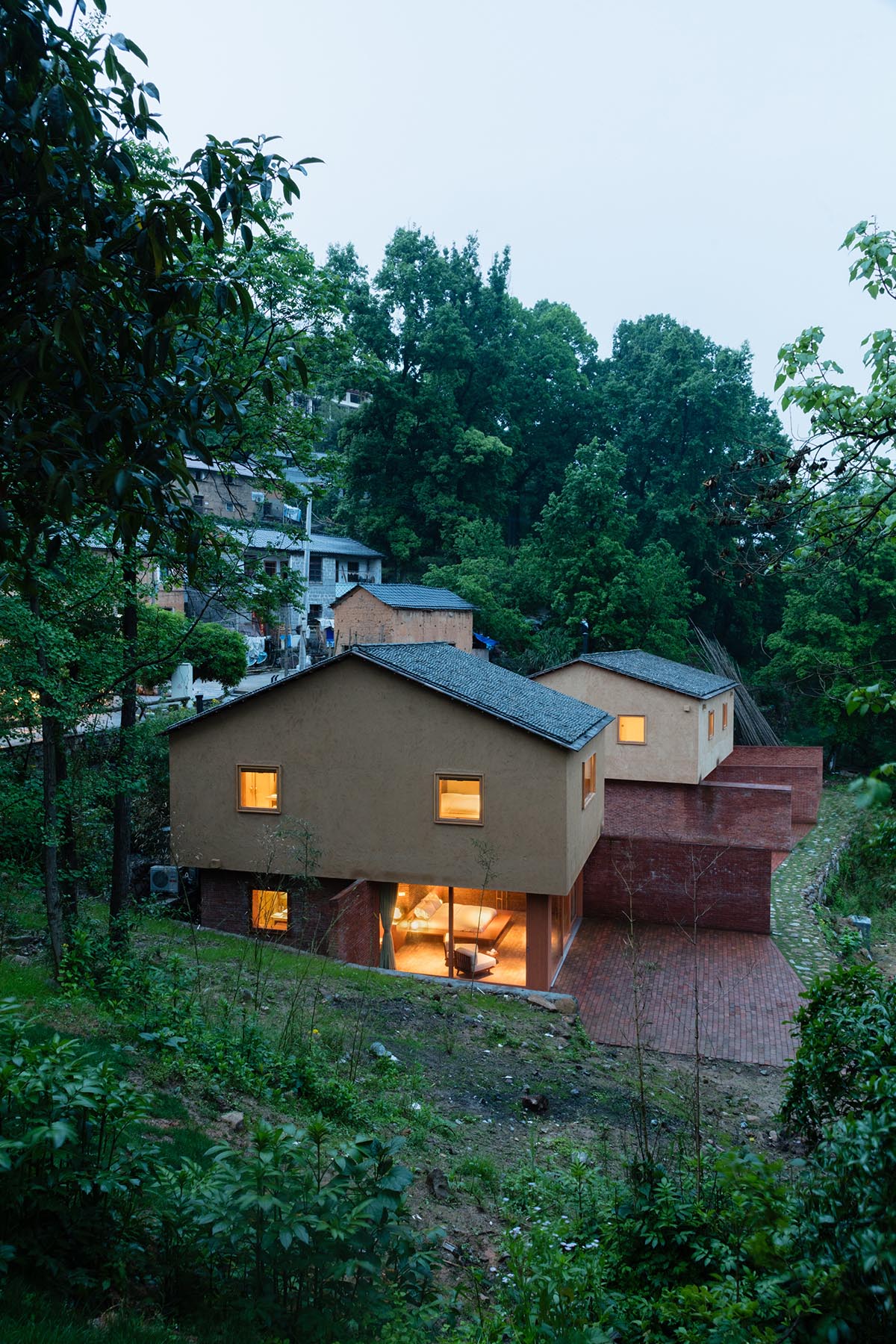
Building No 7 & 9
Encompassing a total of 1,400-square-metre area, the six buildings show a perfect harmony in this rural environment, presenting like they are already part of this village for many years.
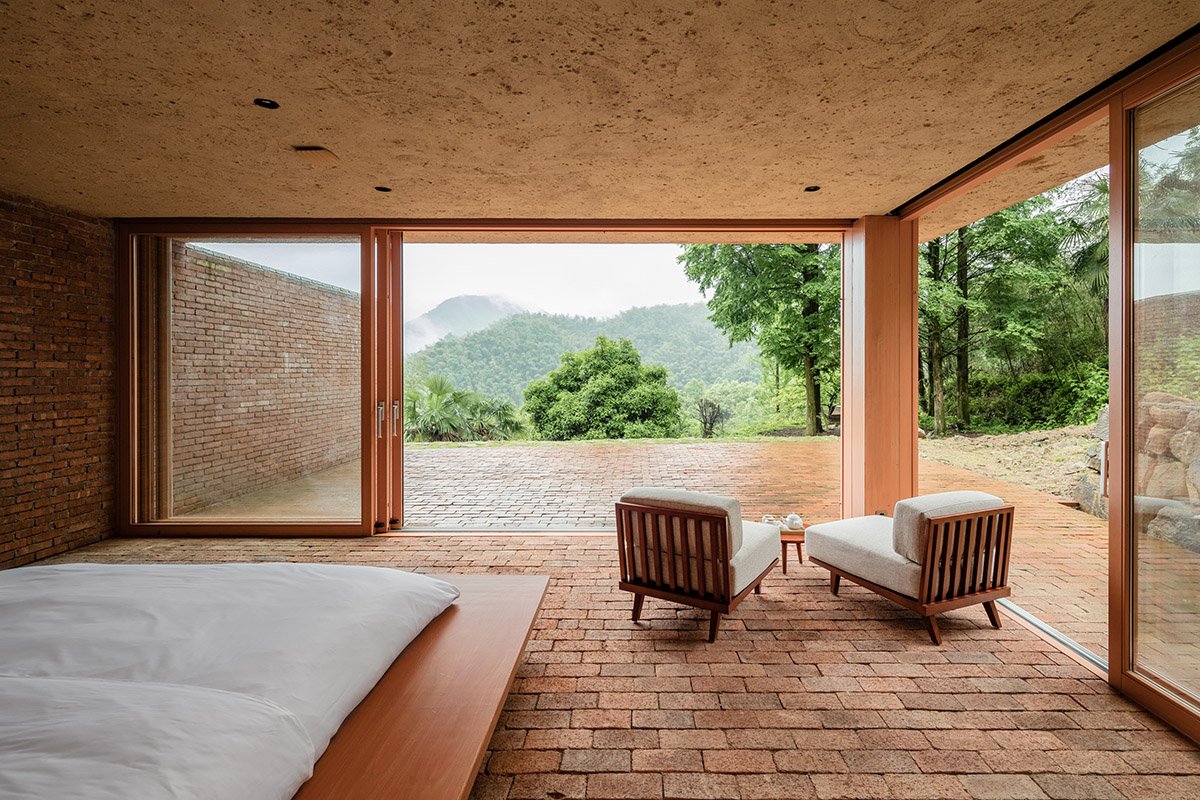
Building No 7 & 9
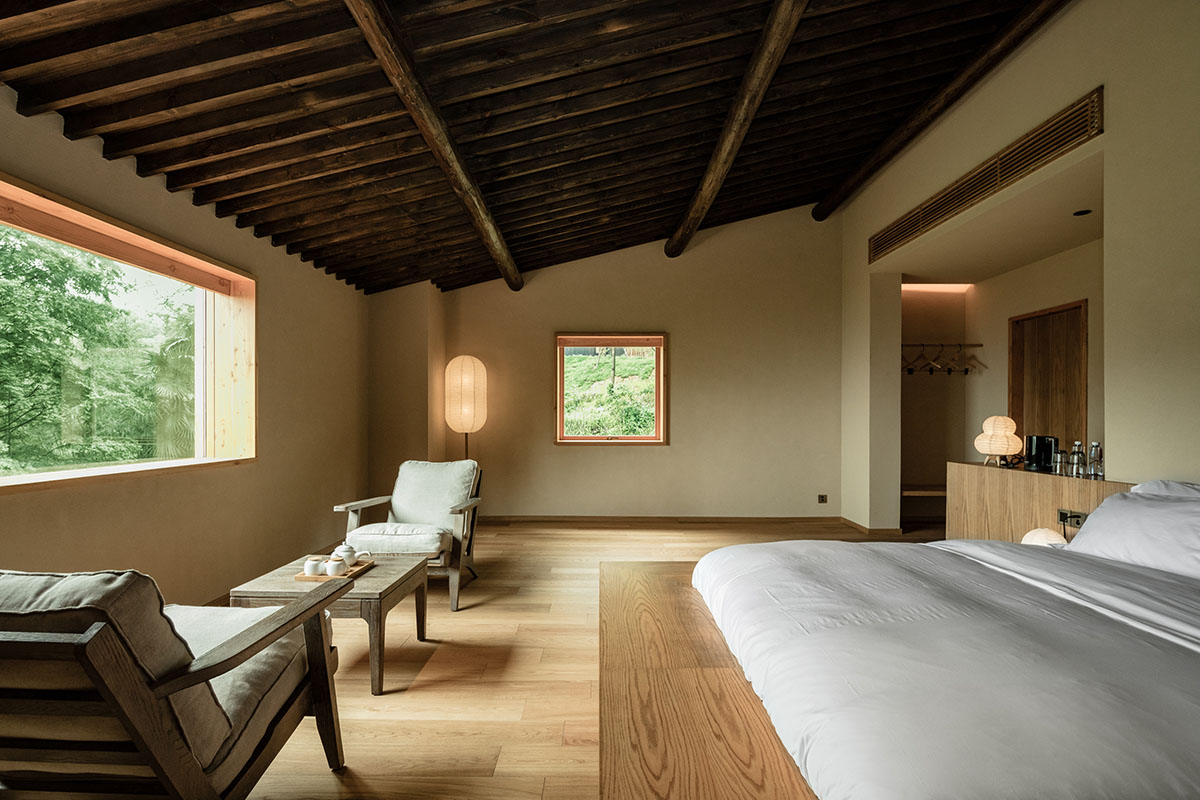
Building No 7 & 9
The village nests within the mountain, and the houses were built following the contour line of the mountainous terrain pointing at different directions. Although the distance between each building is relatively close, there is still a good view for each one because they never face each other.

Building No 5
The architects used different local materials, such as bamboo, red bricks, stone, and carbonized wood, to highlight each building’s unique site situation, also expressed in each one with a space of rest in nature (living room) and a more private space enclosed with rammed earth walls (bedroom). The coexistence of these two types of space is the architects' solution to the two conflicting conditions.
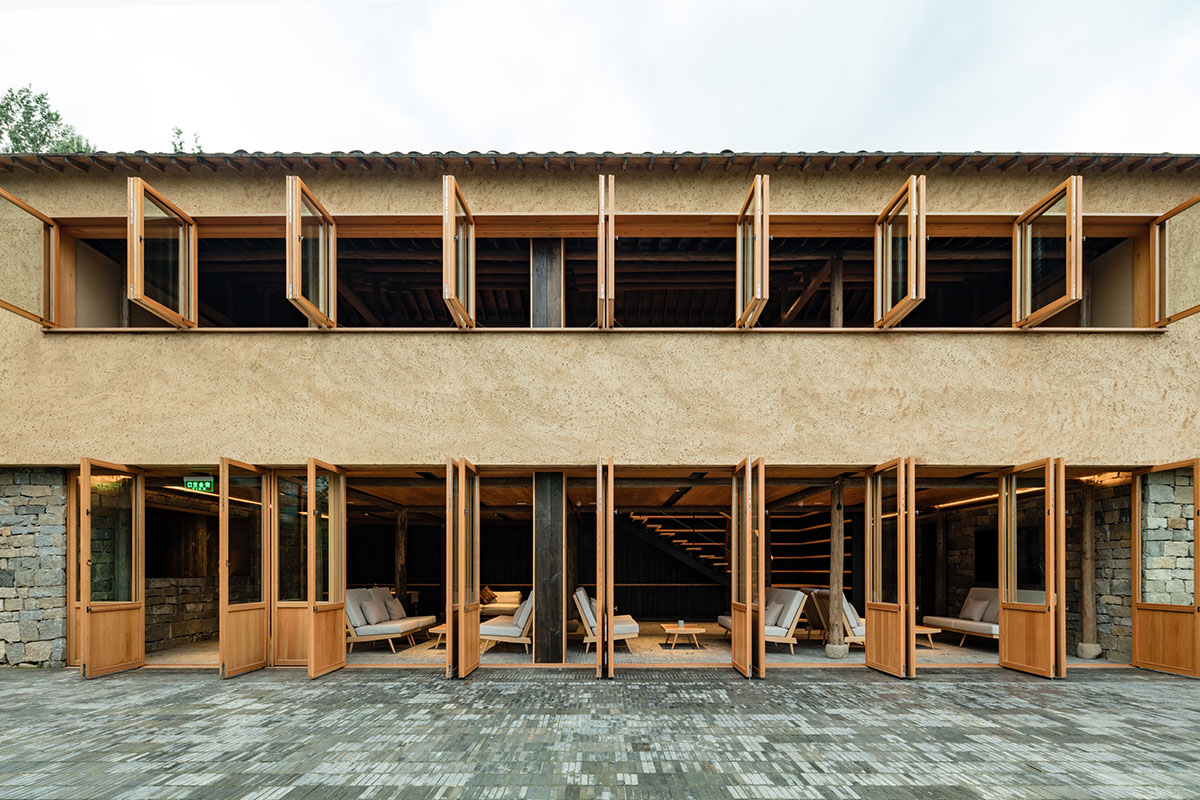
Building No 5
Due to the site being hidden so deep in the mountain, transportation of building materials had to be strategized. The Origin Villa used mostly locally produced, or even reused materials such as soil and stone. This way, not only does the overall retreat village disappear into the landscape, each building can also use its unique material to blur the line between interior and exterior.
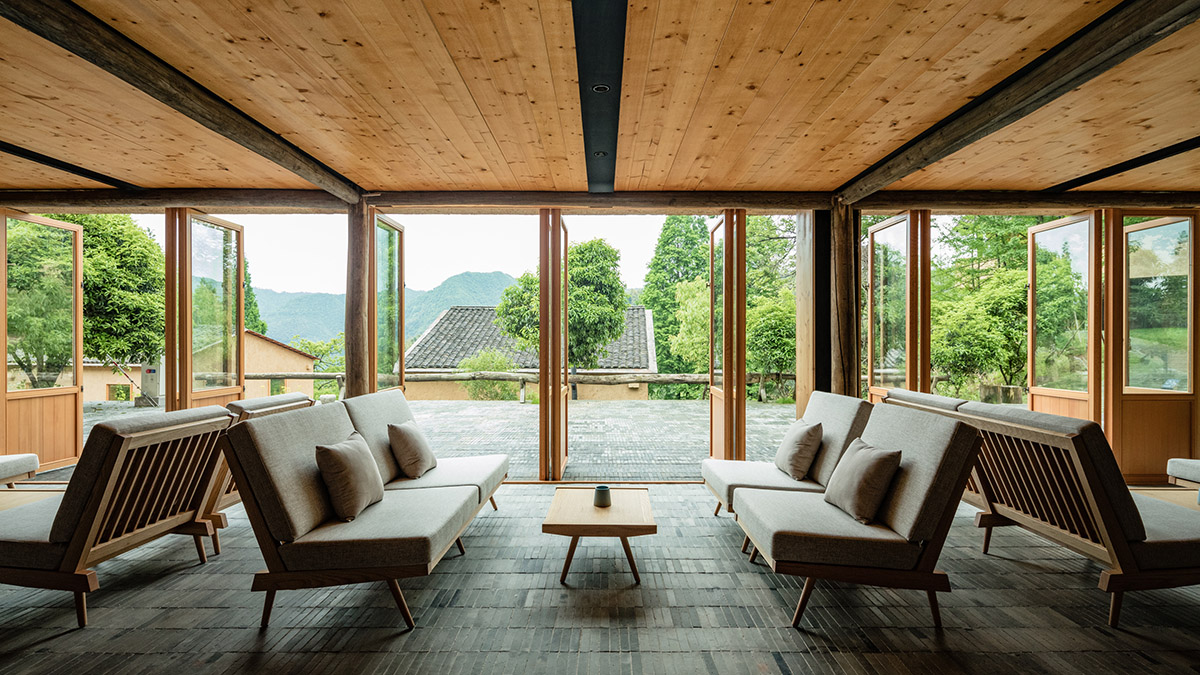
Building No 5
There is no light coming from this lonely village’s surrounding at night, so one can feel sufficient brightness even with aminimum amount of lighting.
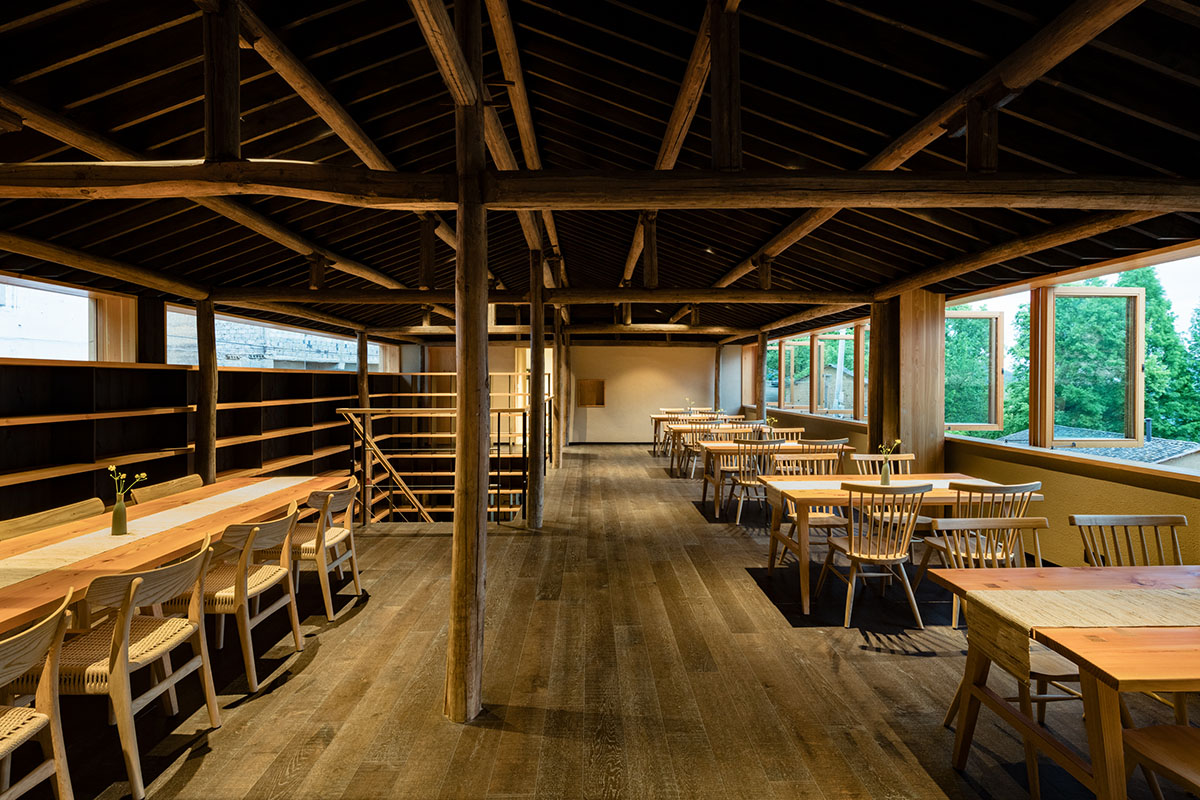
Building No 5
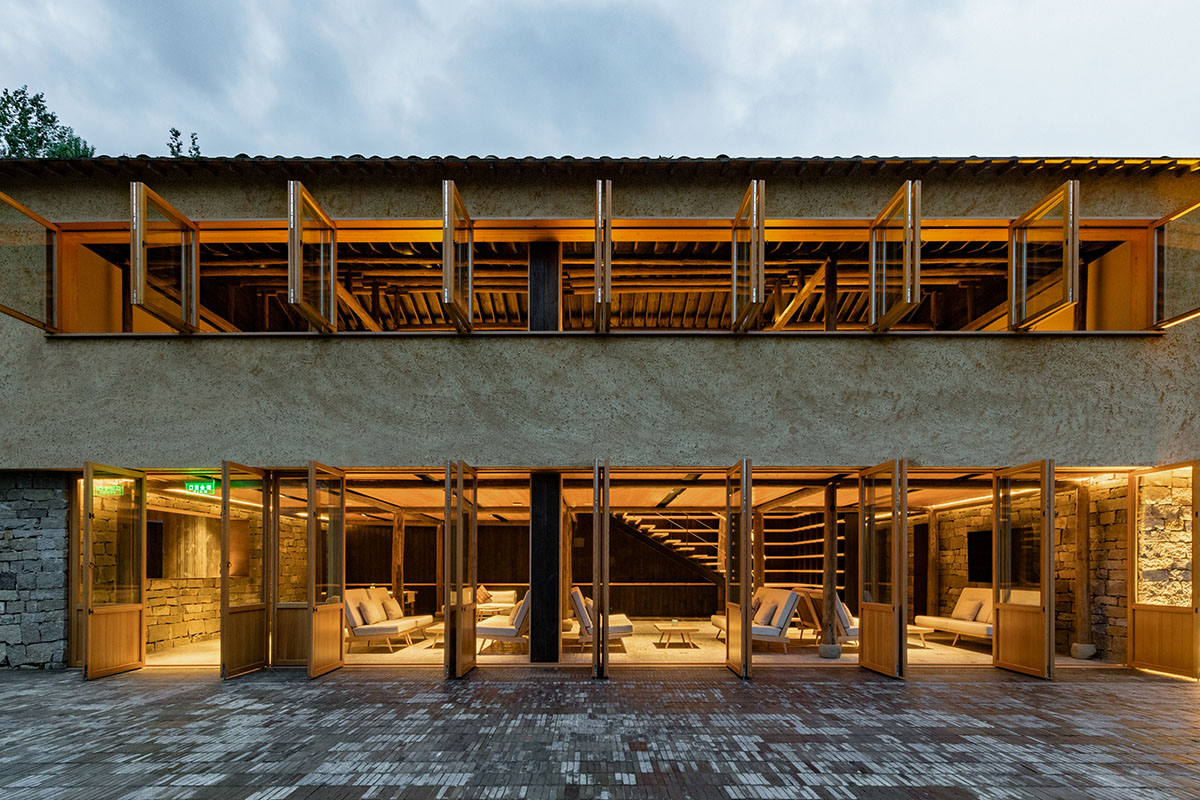
Building No 5
"We kept the lights that can illuminate the entire space uniformly, such as downlights, to the minimum, and used all-directional soft umbrella-like lights such as free-standing lamps and table lights throughout the space," added the architects.
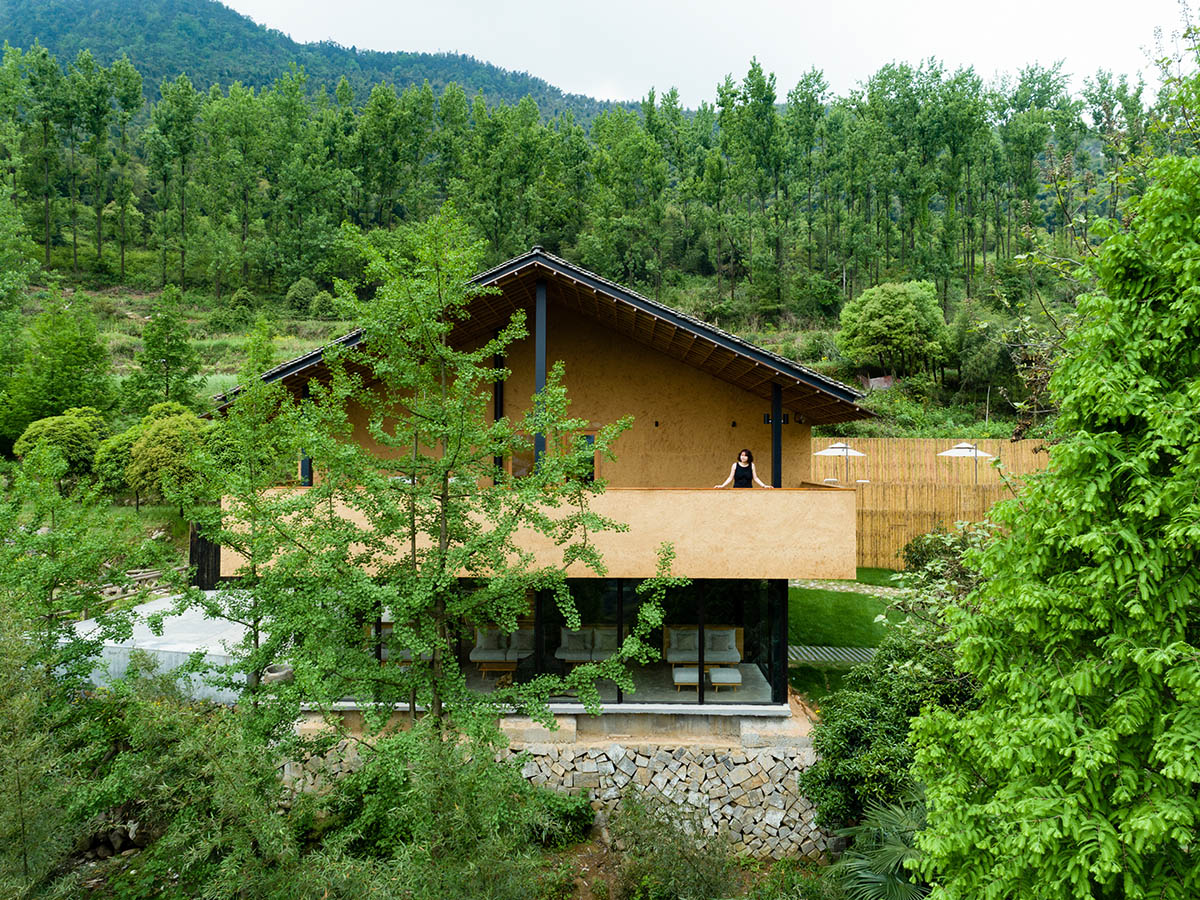
Building No 10
These fixtures project soft arches of light and shadow, illuminating the seamless finish and rounded edges of the walls and ceilings. Wrapped with the warmth of light, the rooms feel more calming and comfortable.
"Blending into the landscape of the village, we hope to give a new perspective of the beautiful scenery through our architecture."
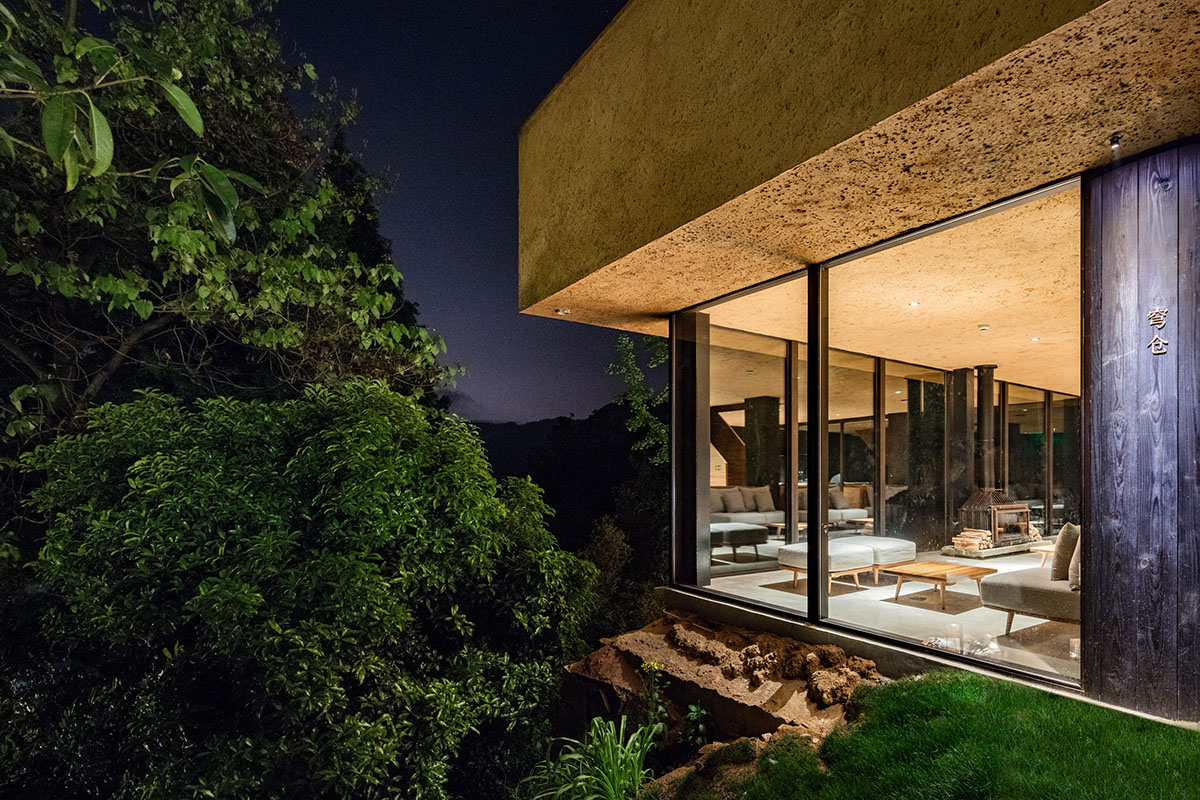
Building No 10
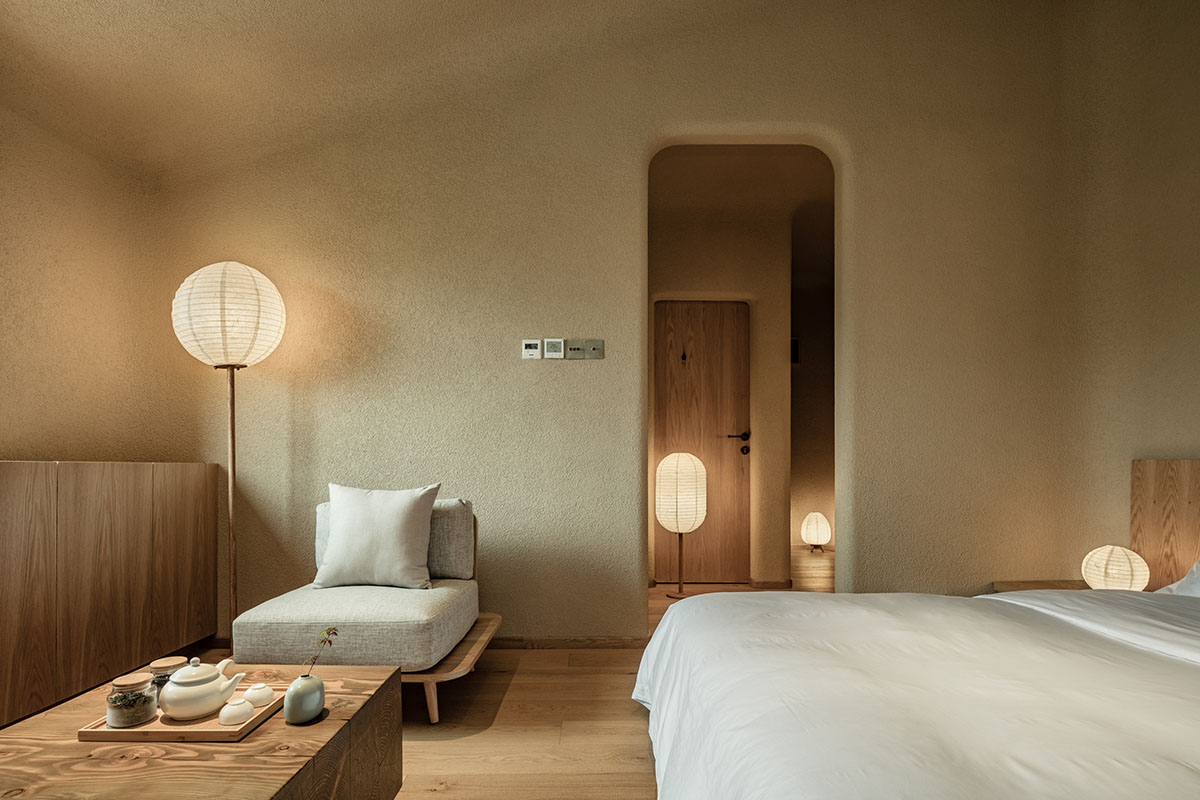
Building No 10

Building No 10
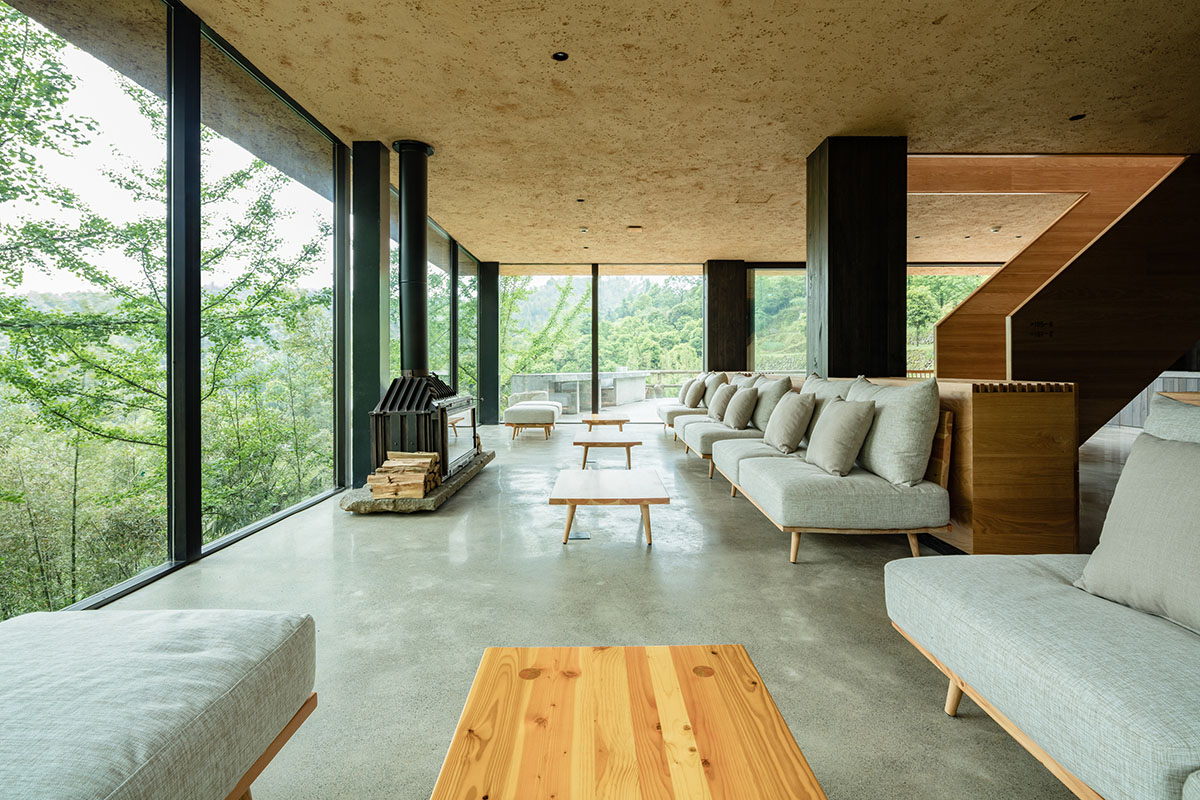
Building No 10

Building No 10
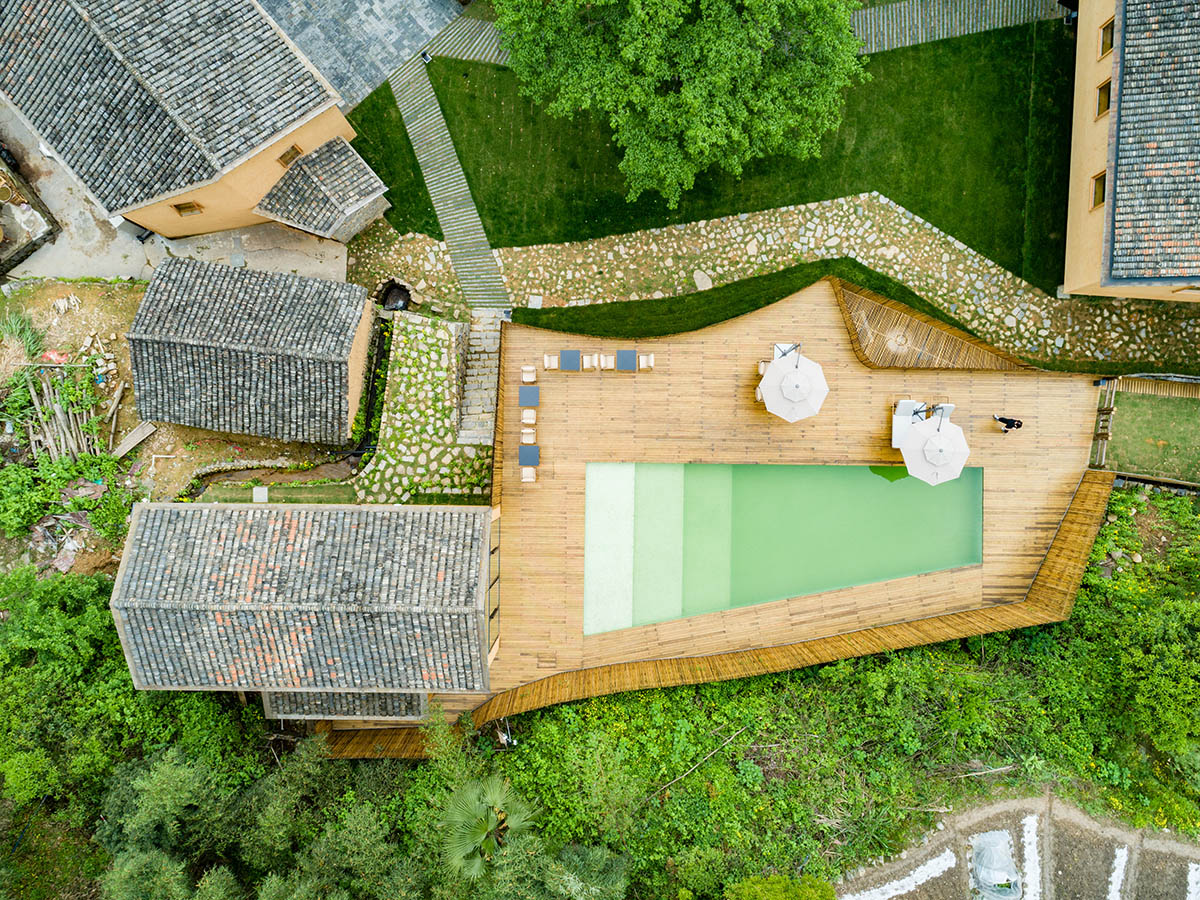
Building No 12
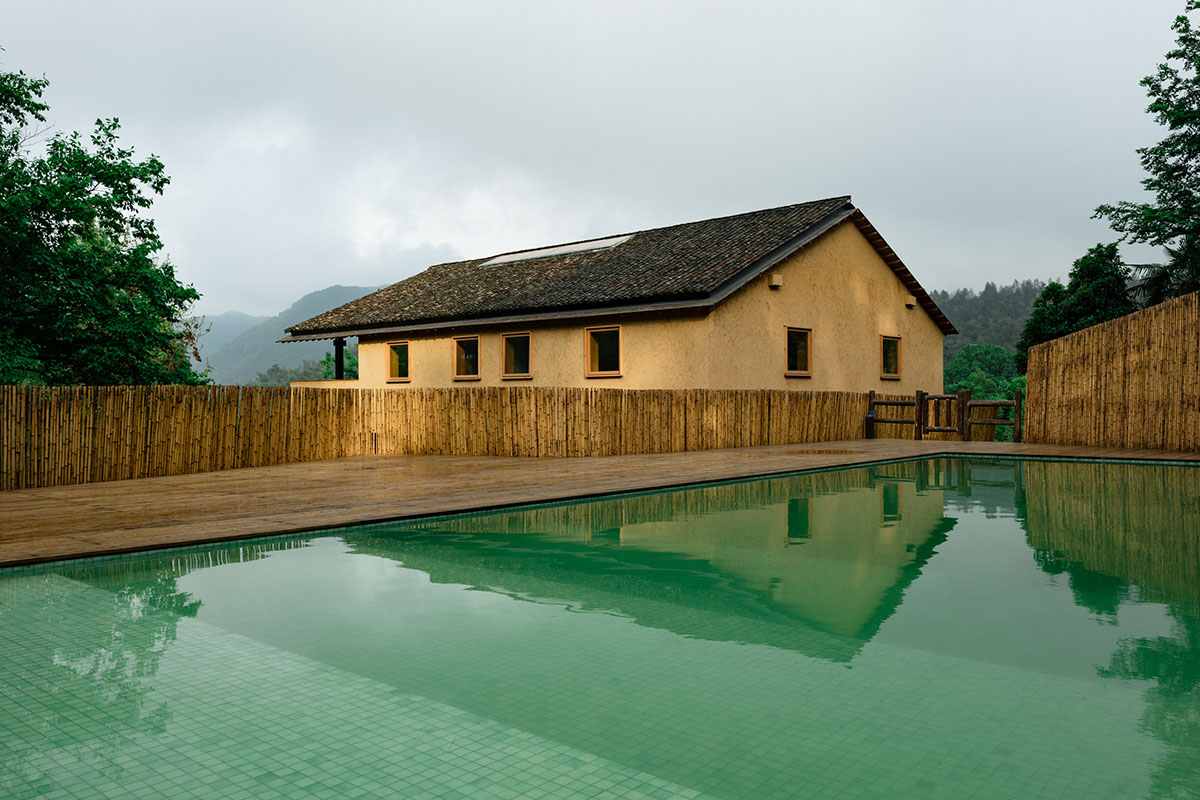
Building No 12
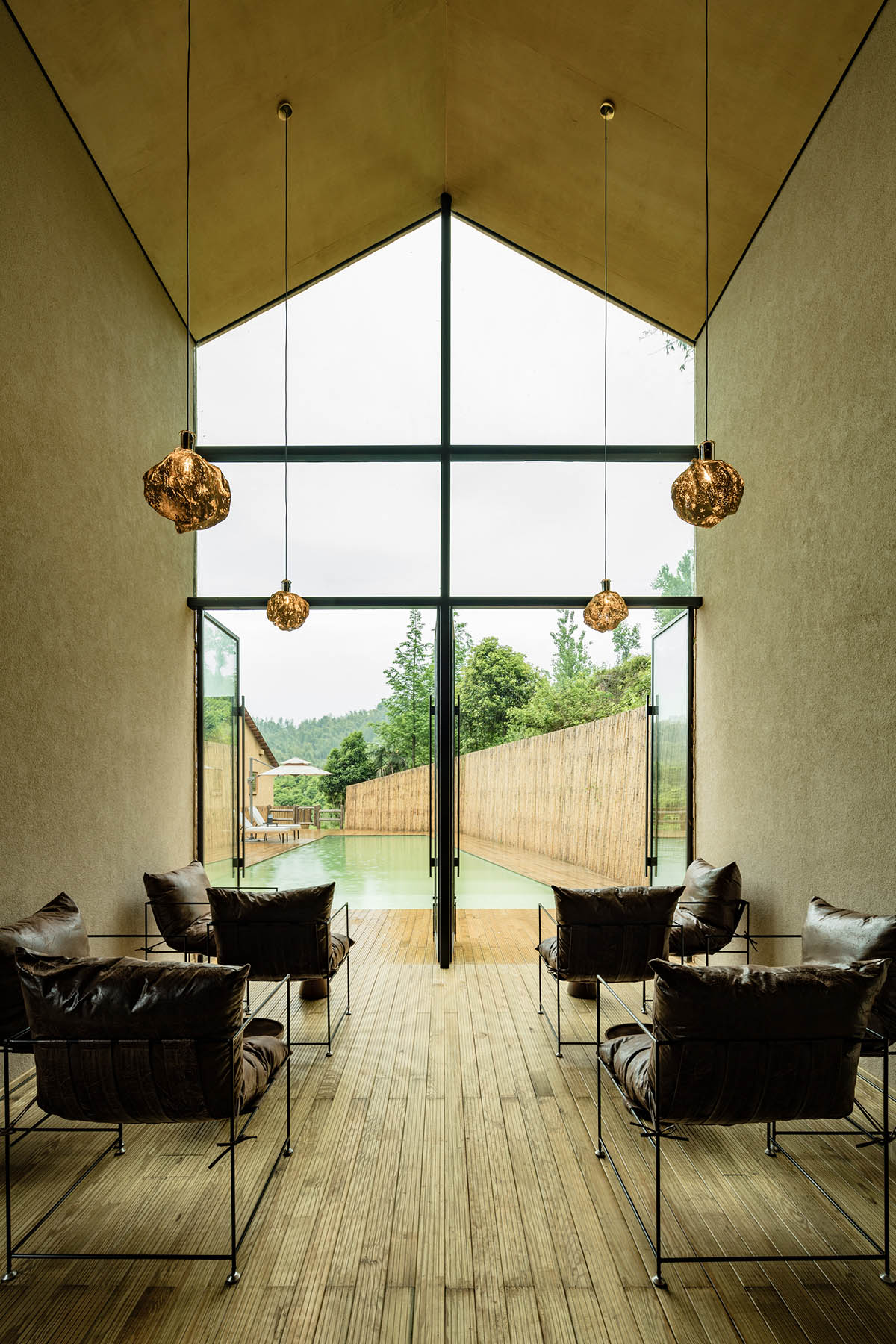
Building No 12
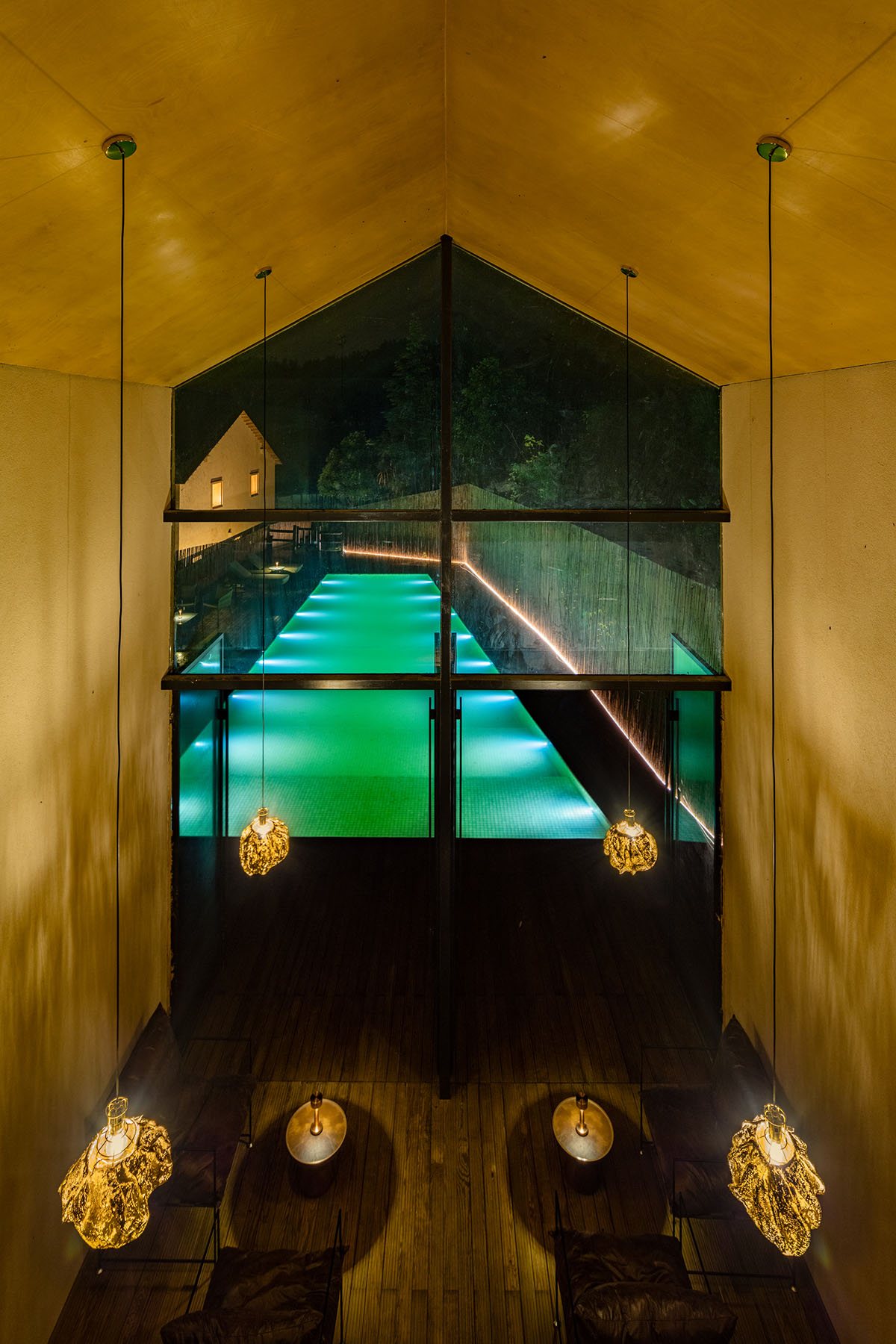
Building No 12
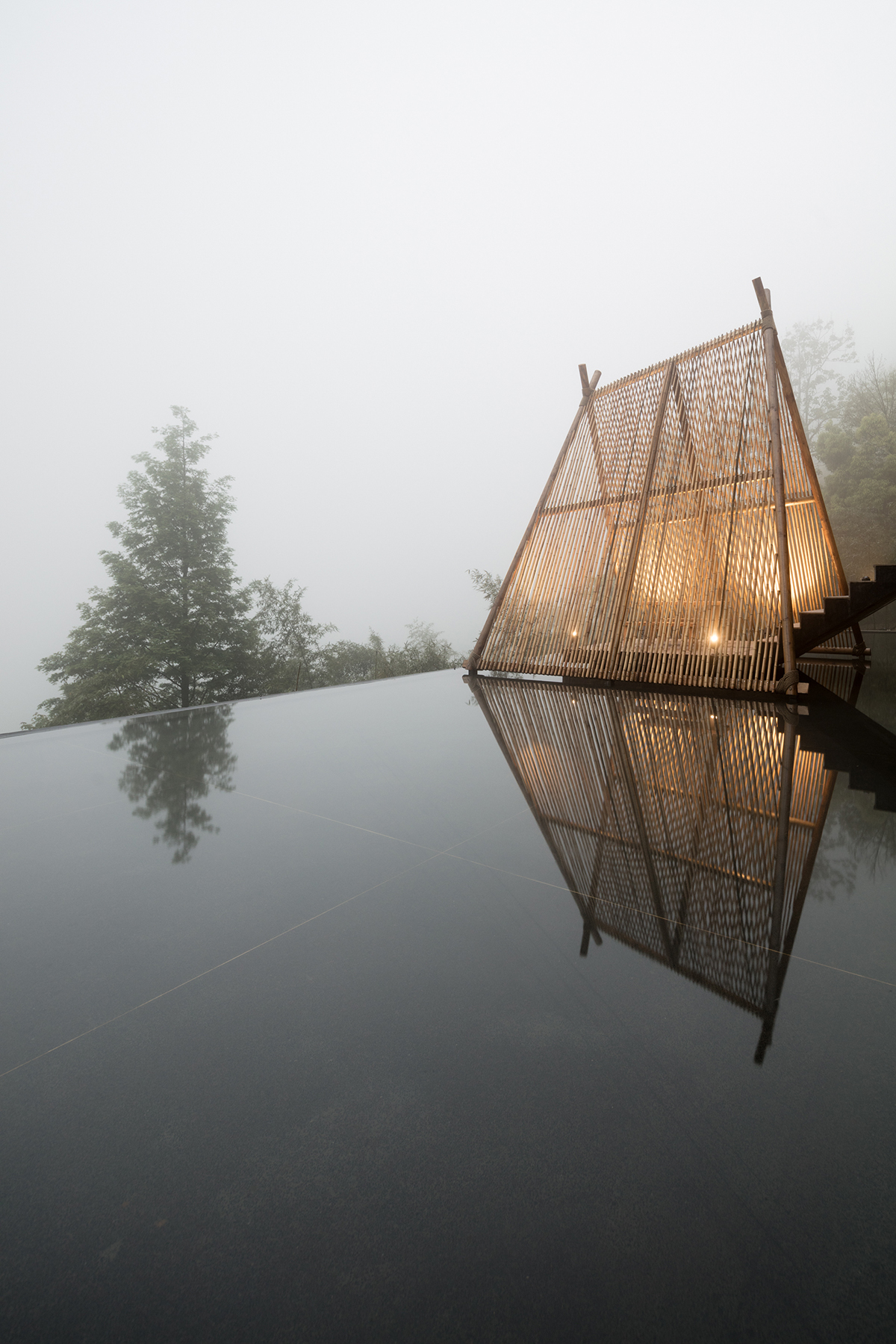
Building No 34
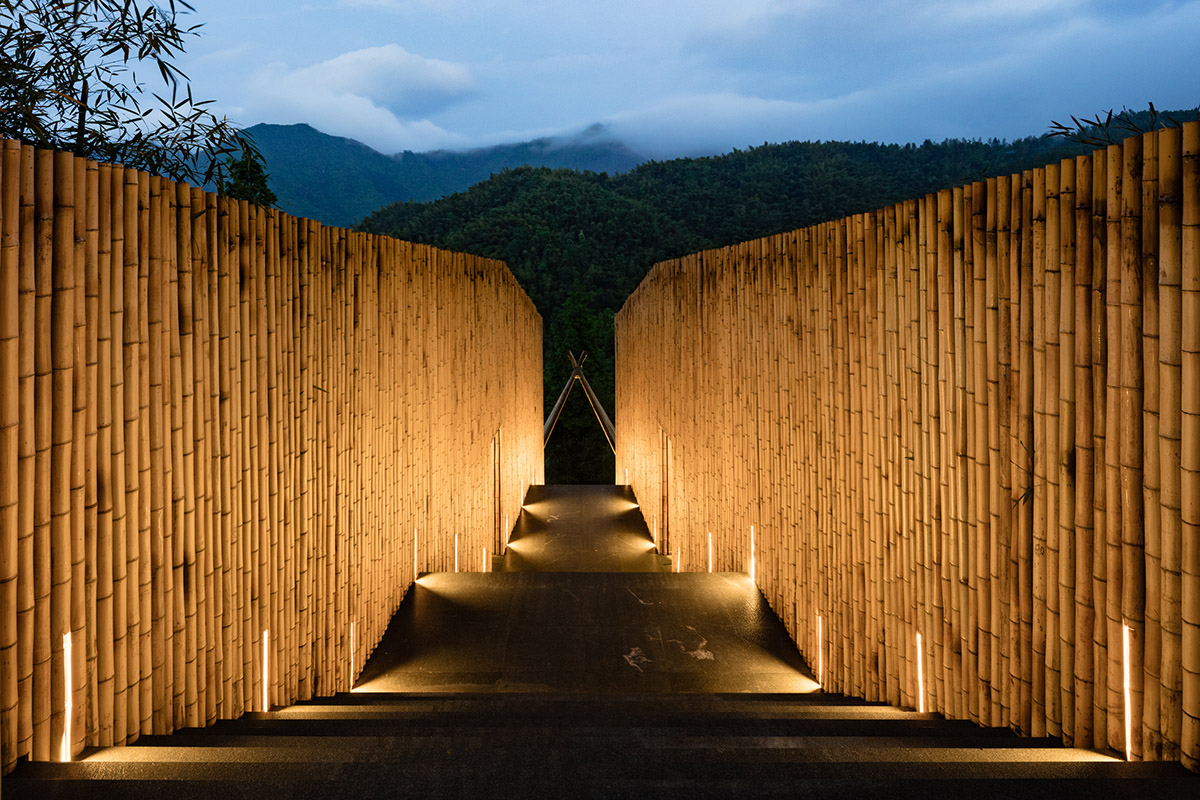
Building No 34
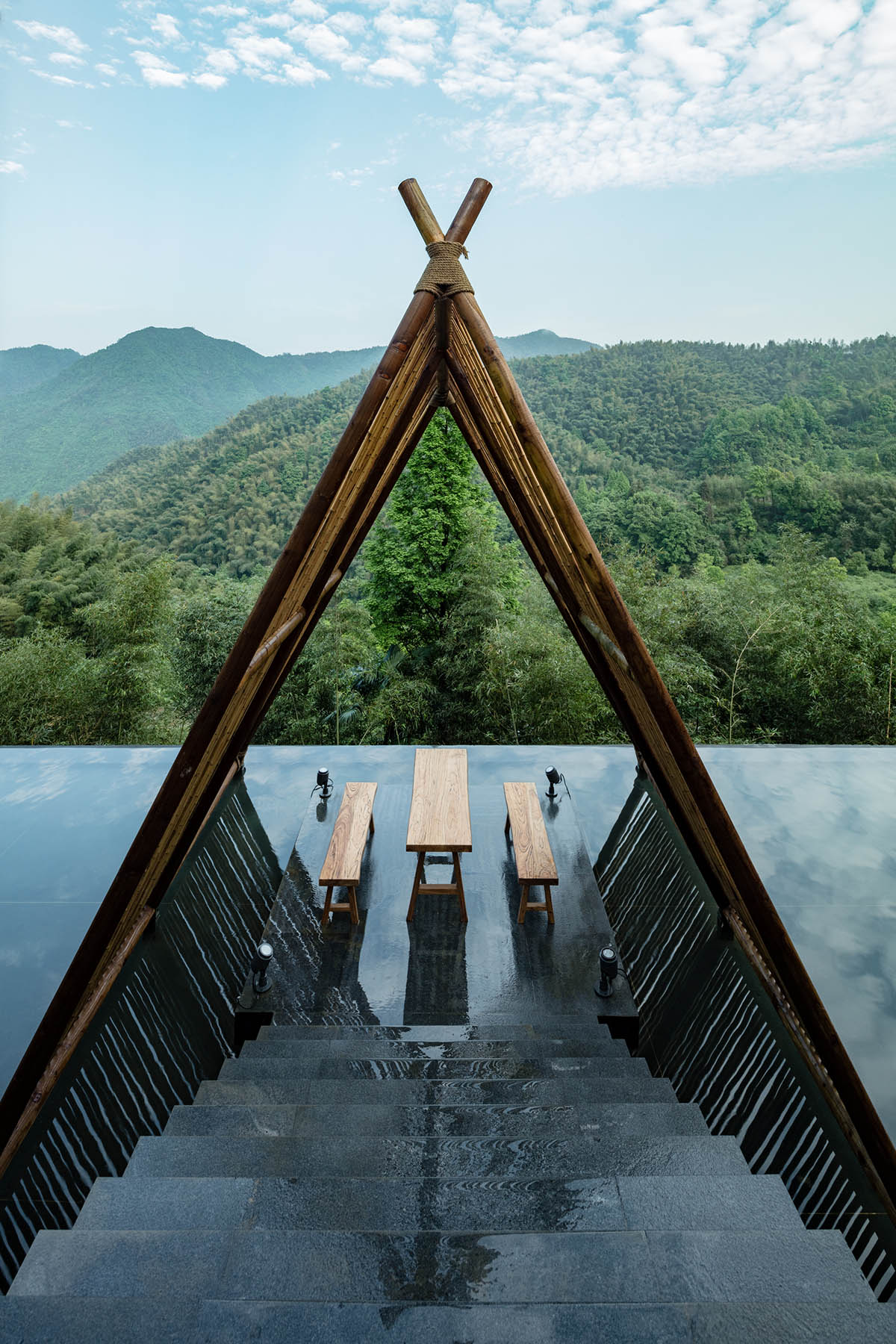
Building No 34
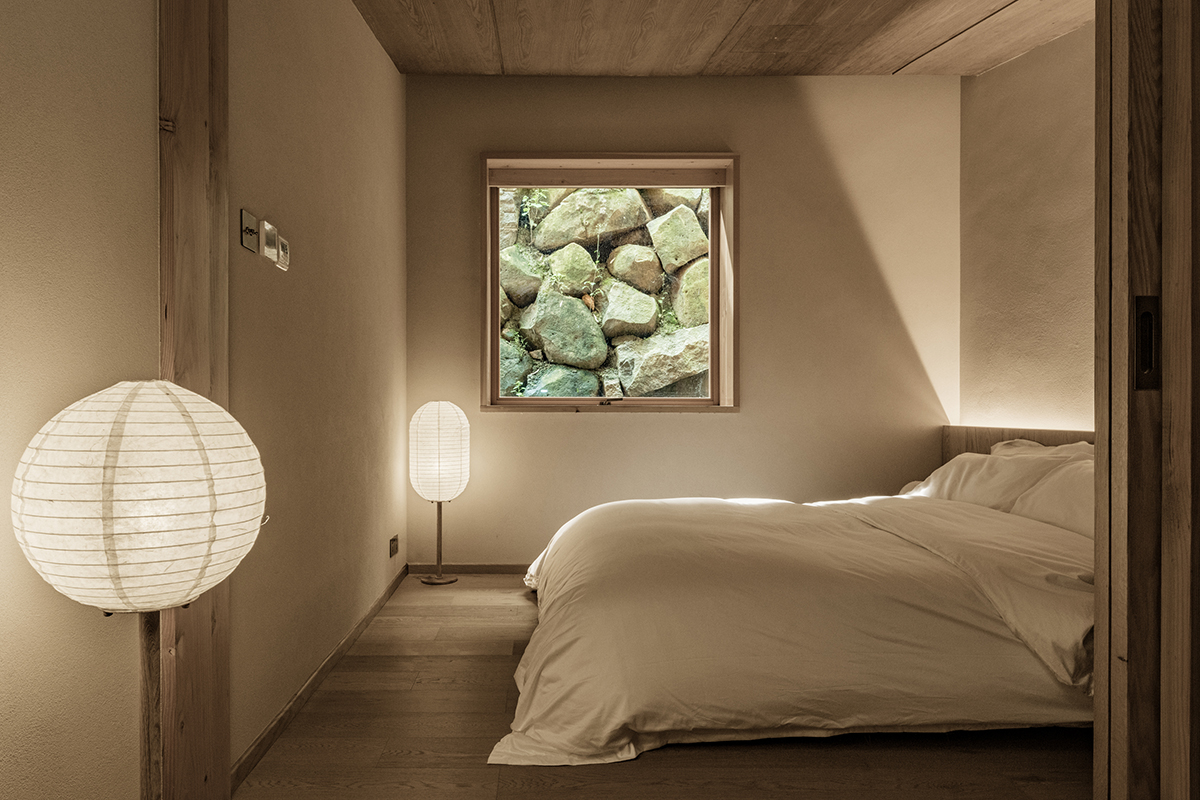
Building No 34
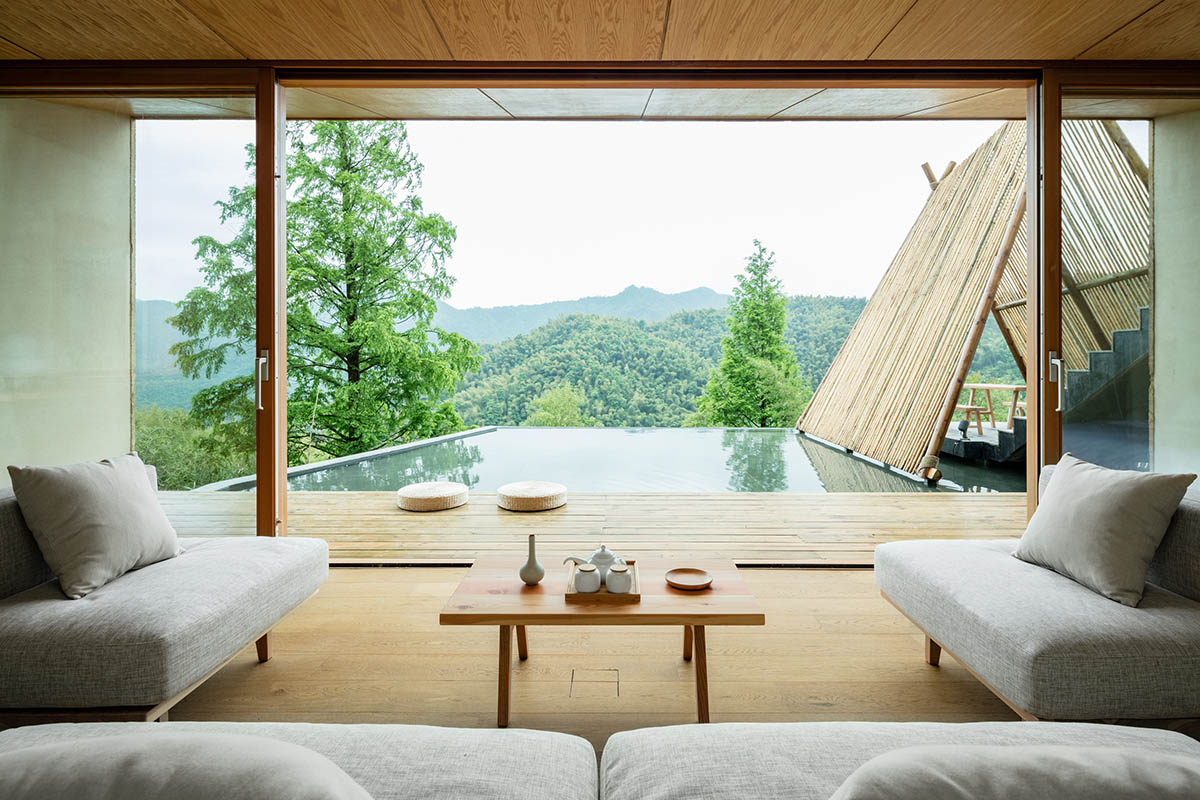
Building No 34
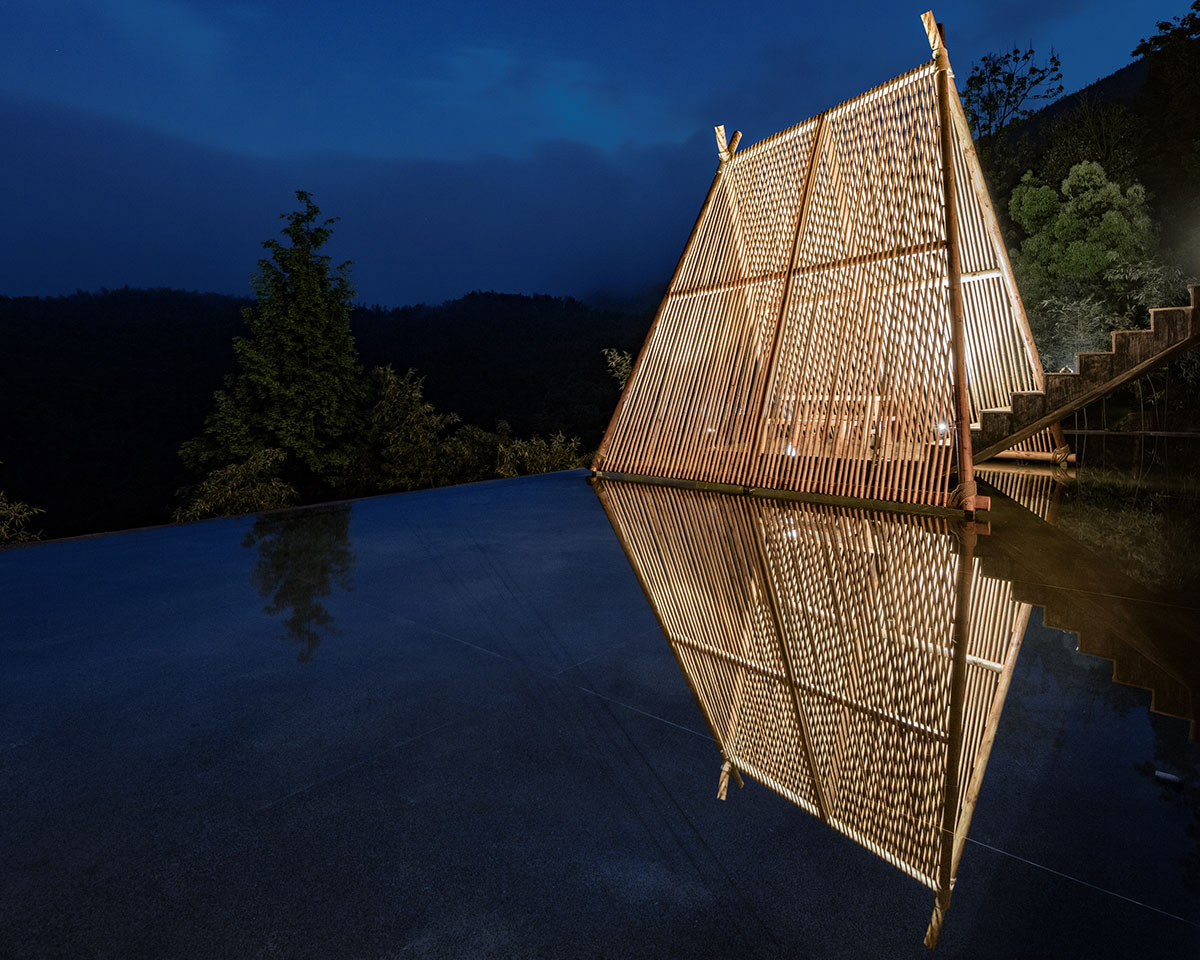
Building No 34
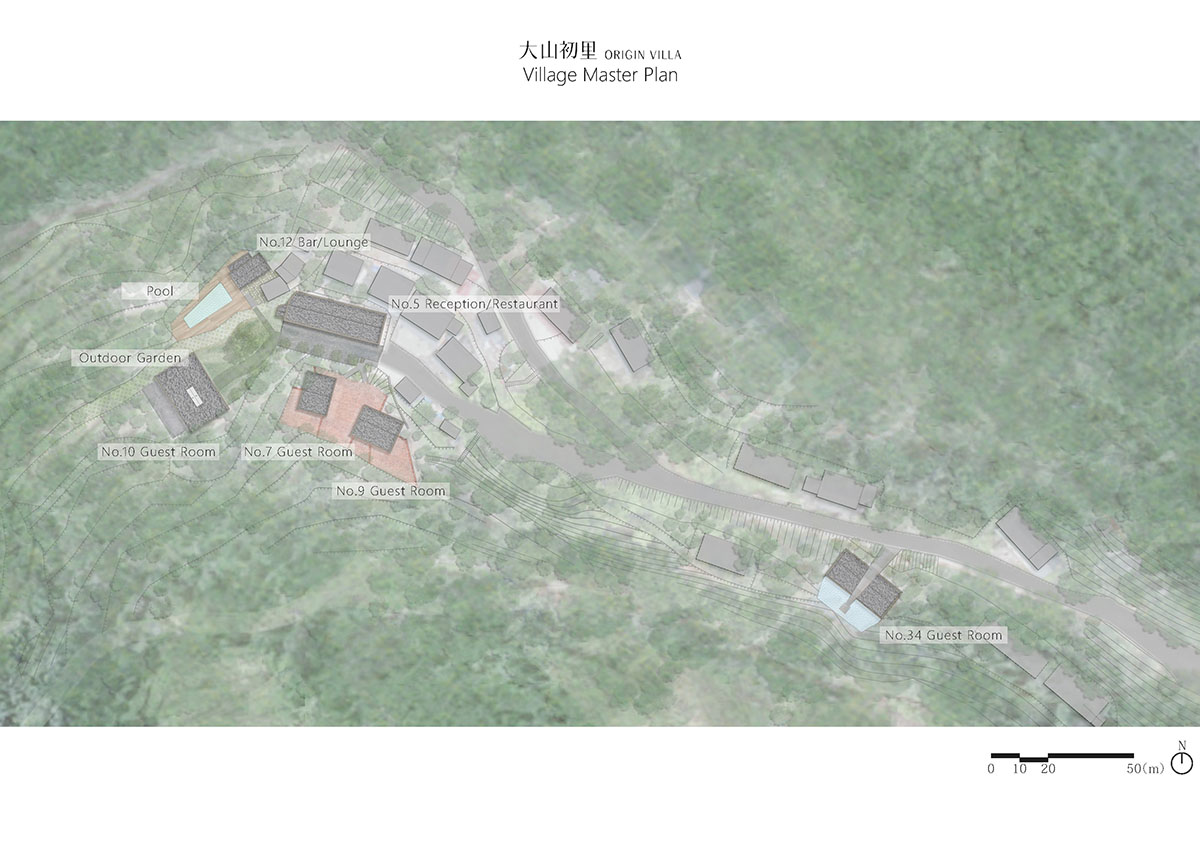

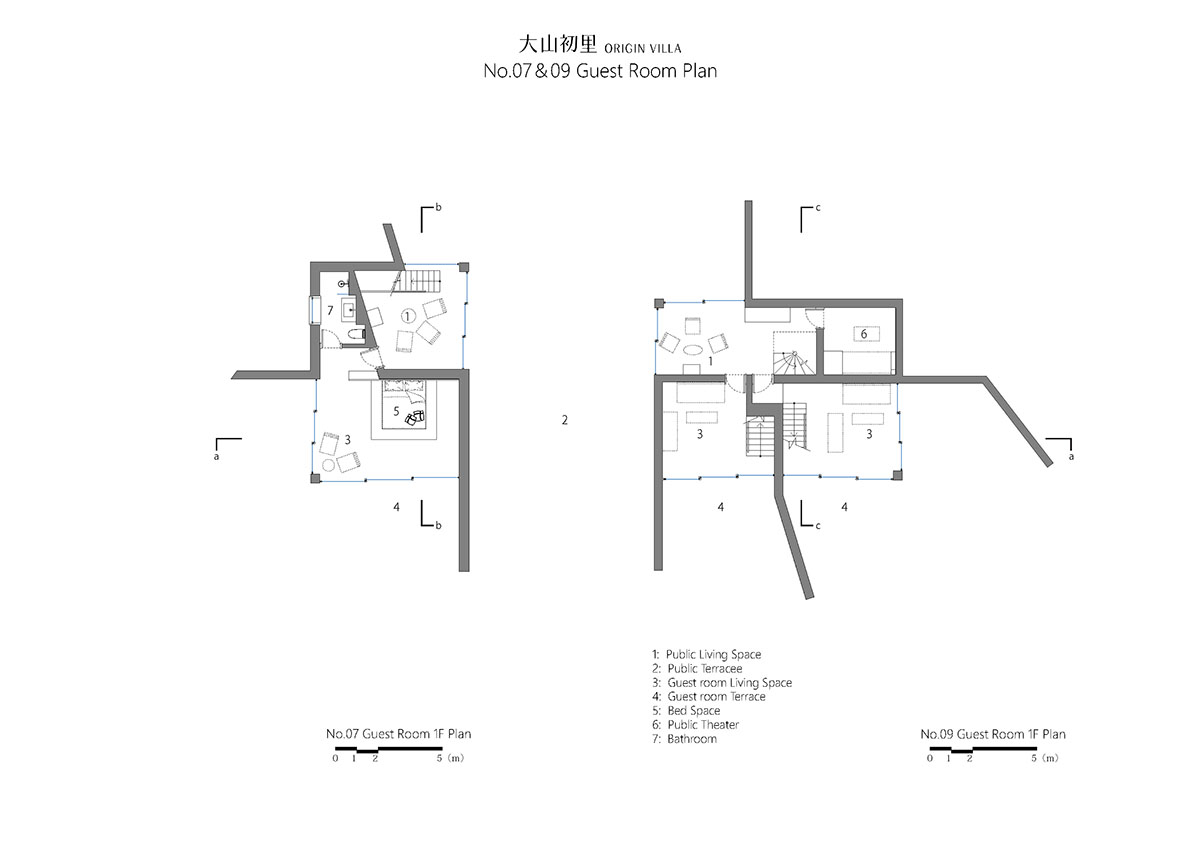
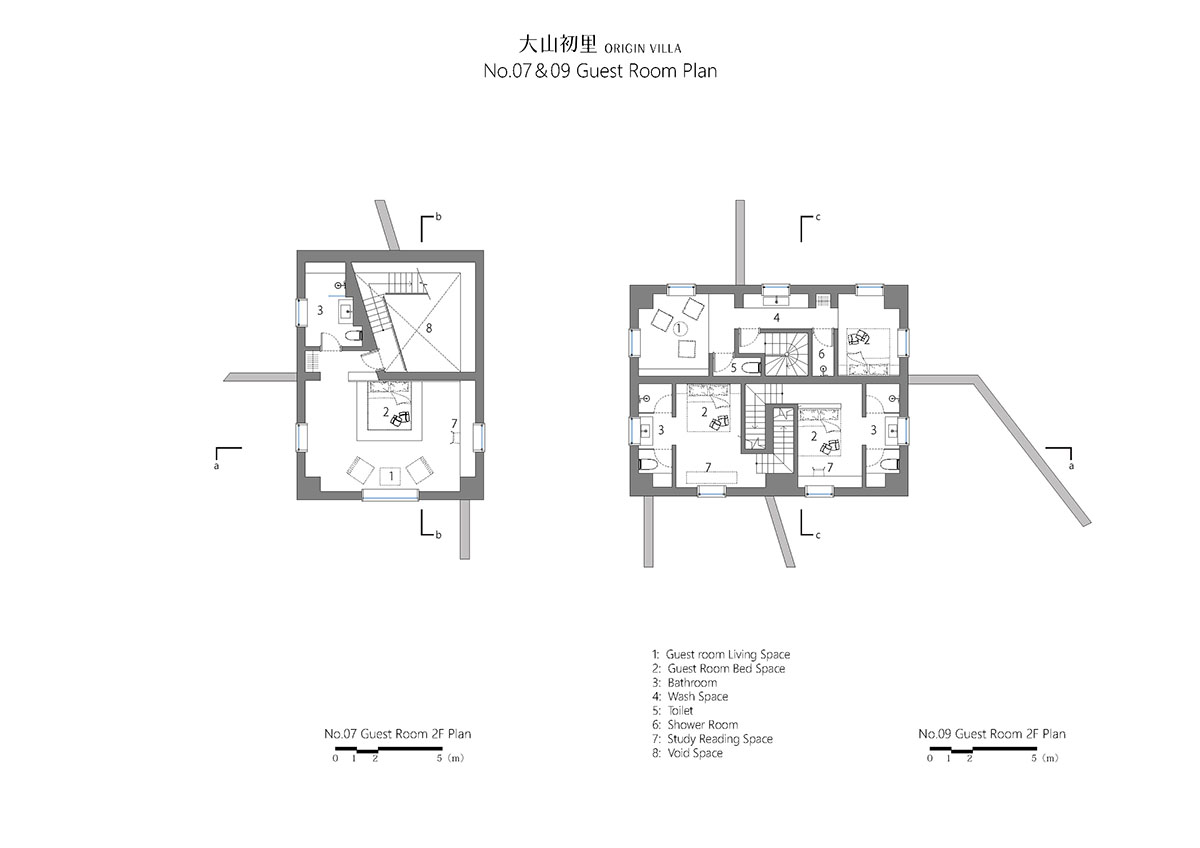
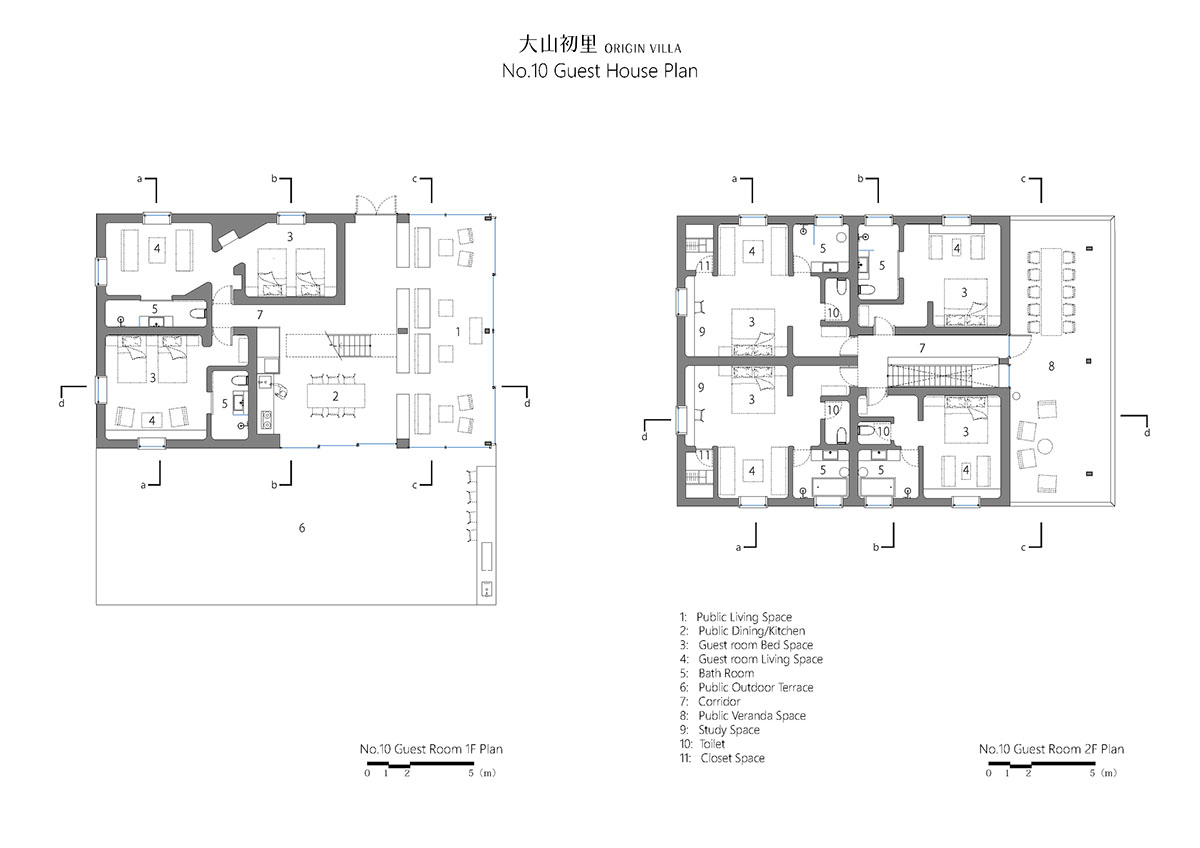
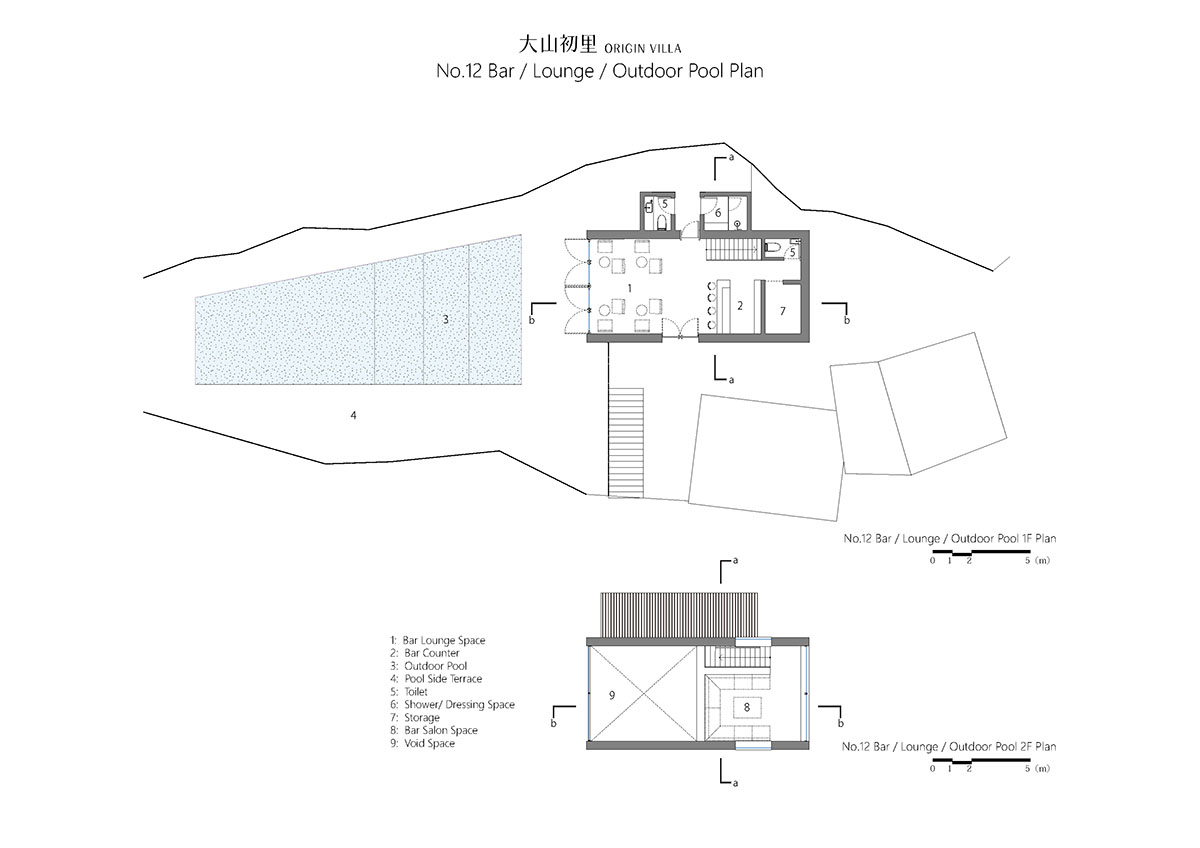
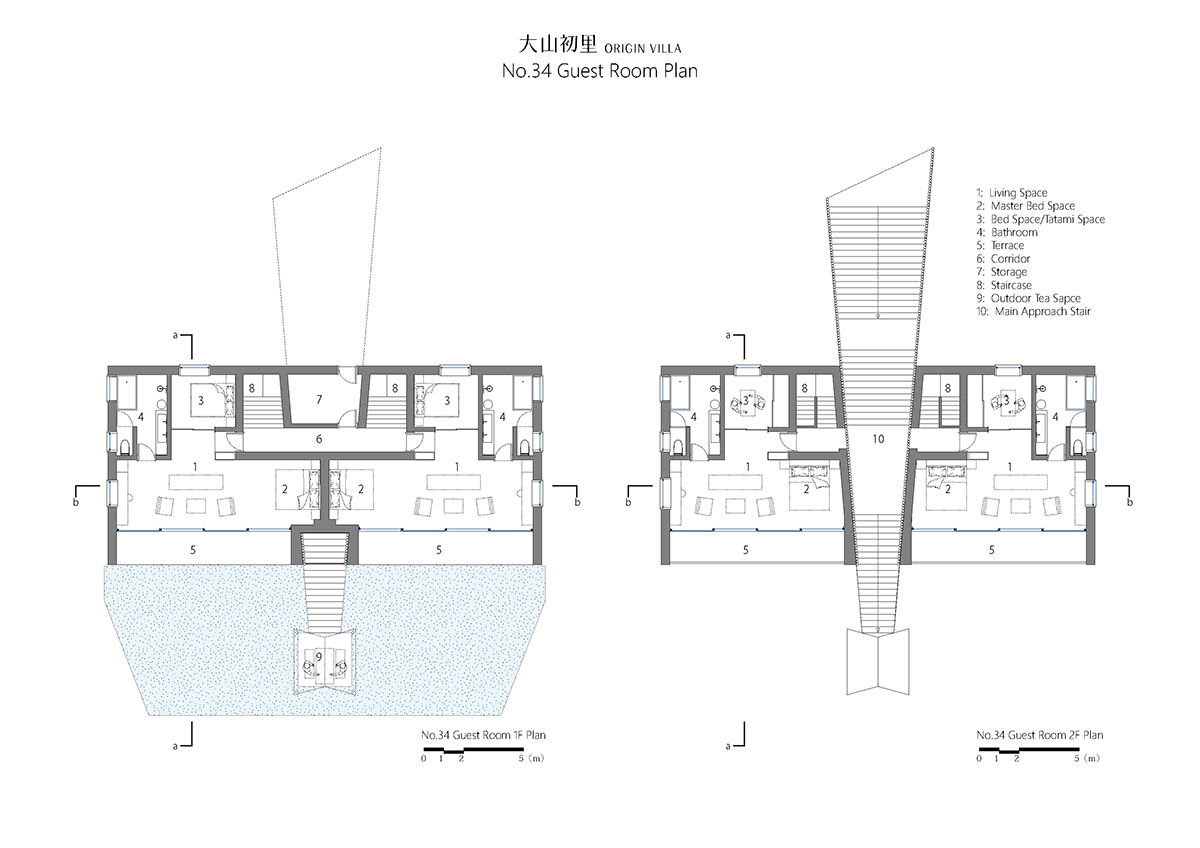
Project facts
Usage: Retreat Village
Building Type: 4 Guesthouse 15 Rooms, 2 Public Buildings
Site: Dashan Village, Hangzhou, Zhejiang, China
Client: Hangzhou Origin Villa Hotel &Resort, co.
Construction: March 2017 - May 2019
Site Area: 660㎡
Total Floor Area: 1400㎡
Design Team: Shinya Kojima, Ayaka Kojima, Kotaro Kitakami, Yan Zhao, Zhide Hu
All images © Keishin Horikoshi / SS
> via kooo architects
